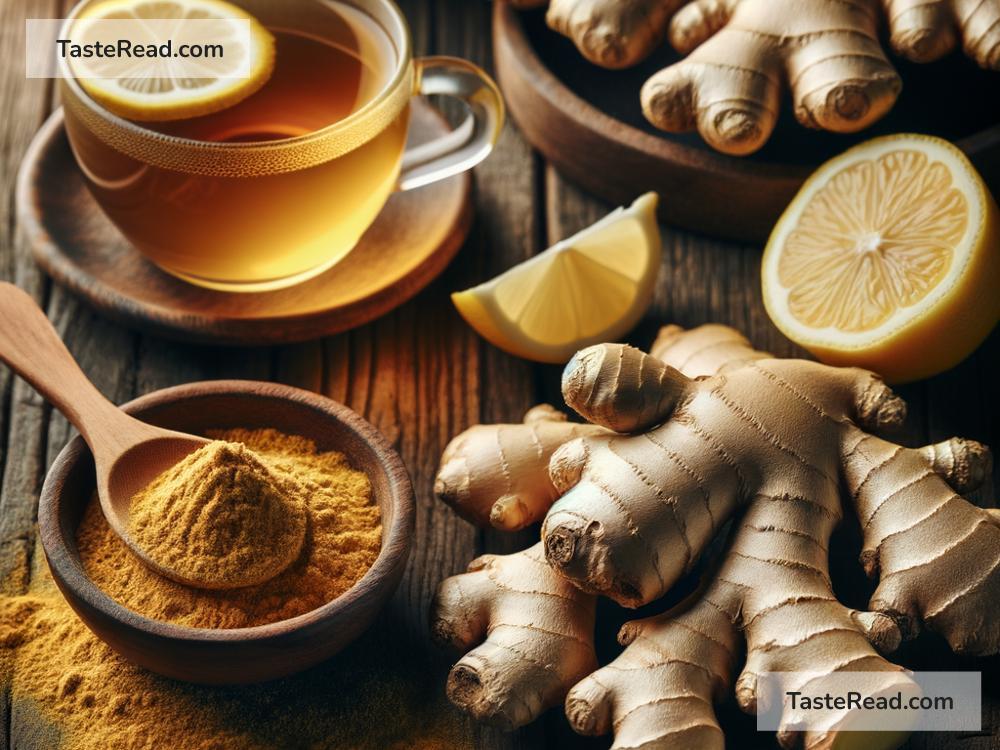Nature’s Healer: Medicinal Properties of Ginger in Reducing Nausea and Inflammation
Ginger is more than just a flavorful spice that adds warmth and zing to your favorite dishes. For centuries, this knobby root has been revered for its impressive medicinal properties, especially its ability to reduce nausea and inflammation. Whether you brew it into a tea, chew on it raw, or sprinkle its powdered form into recipes, ginger is a natural remedy that can support your health in remarkable ways.
Let’s take an easy-to-understand look at how ginger works its magic and why this humble root deserves a spot in your diet.
What is Ginger?
Ginger is the underground root of the plant Zingiber officinale, native to Southeast Asia. With its pungent aroma and spicy kick, ginger has been used in traditional medicine systems like Ayurveda, Chinese medicine, and herbal remedies for thousands of years. It not only enhances flavors in food but also offers an impressive list of health benefits, particularly in managing nausea and inflammation.
The secret to ginger’s healing power lies in its active compounds, particularly gingerol. Gingerol is the chemical that gives ginger its spicy taste and is responsible for many of its medicinal properties.
Ginger’s Role in Reducing Nausea
One of the most common uses for ginger is to ease nausea. Anyone who has felt queasy knows how uncomfortable it can be—and ginger might be the perfect solution.
1. Relief from Morning Sickness
Morning sickness during pregnancy affects many women, causing nausea and vomiting, especially during the first trimester. Research shows that ginger is a safe and effective remedy to help reduce these unpleasant symptoms. Pregnant women can consume a small amount of ginger tea or chew a piece of ginger candy to find relief. However, it’s always a good idea to consult a doctor before taking ginger during pregnancy.
2. Benefits for Motion Sickness
If you’ve ever felt nauseous while traveling on a plane, boat, or car, you may have experienced motion sickness. Ginger has been shown to reduce the feelings of dizziness, queasiness, and vomiting associated with motion sickness. Taking ginger supplements or sipping on ginger tea before a trip can make your travels more comfortable.
3. Post-Operative Nausea
After surgery, many people experience nausea as a side effect of anesthesia. Ginger has been found to help reduce post-operative nausea, offering a natural alternative to anti-nausea medications. This makes it an excellent choice for people looking to ease discomfort naturally.
4. Support for Cancer Patients
Chemotherapy is a life-saving treatment for cancer, but it often causes severe nausea and vomiting. Ginger has been studied for its ability to ease these symptoms, making coping with chemotherapy smoother for patients. While ginger won’t eliminate nausea entirely, it can provide much-needed relief.
Ginger’s Role in Reducing Inflammation
Inflammation is part of our body’s defense system, helping to fight infections and heal injuries. However, when inflammation becomes long-lasting, or chronic, it can lead to health issues such as arthritis, heart disease, and diabetes. Ginger is packed with anti-inflammatory compounds that can calm inflammation and promote better health.
1. Help for Arthritis and Joint Pain
Arthritis, which causes painful swelling in the joints, is one of the most common inflammatory conditions. Ginger’s anti-inflammatory properties can ease joint pain and stiffness. Studies have shown that ginger supplements or topical ginger treatments can reduce symptoms of osteoarthritis and rheumatoid arthritis. For older adults or athletes experiencing joint discomfort, ginger can be a natural pain reliever.
2. Better Digestive Health
Inflammation doesn’t just affect your joints—it can also upset your stomach and intestines. Ginger’s anti-inflammatory effects work wonders for digestive health, soothing an irritated gut and promoting better digestion. It’s especially helpful for people with conditions like irritable bowel syndrome (IBS).
3. Improved Heart Health
Chronic inflammation is a known contributor to heart disease. Ginger may help reduce inflammation in the blood vessels, lowering the risk of heart problems. Some studies also suggest that ginger can improve cholesterol levels and support healthy blood circulation, making it a great addition for cardiovascular health.
4. Fighting Everyday Aches
Do you experience headaches or muscle soreness after exercising? Ginger can come to the rescue. Its natural anti-inflammatory compounds can reduce the swelling and pain associated with everyday aches, making recovery quicker and less painful.
How to Use Ginger
Adding ginger to your daily routine is easy and enjoyable! Here are a few suggestions:
- Ginger Tea: Brew grated ginger in hot water to create a soothing tea.
- Ginger Capsules: Ginger supplements are widely available and convenient.
- Cooking: Add fresh or powdered ginger to soups, stir-fries, and baked goods.
- Raw Ginger: Chewing on a small piece of raw ginger can help with nausea.
A Word of Caution
While ginger is generally safe for most people, too much ginger can lead to mild side effects like heartburn or upset stomach. If you take medications for blood thinning or diabetes, talk to your doctor before using ginger regularly, as it may interact with your pills.
Conclusion
Ginger is truly a gift from nature—a flavorful spice with powerful medicinal properties. From reducing nausea caused by morning sickness, motion sickness, and chemotherapy to taming inflammation associated with arthritis and digestive issues, ginger can provide effective, natural relief. The next time you’re feeling queasy or dealing with soreness, consider reaching for ginger to support your health.
So why not let ginger spice up both your kitchen and your wellness routine? This small root packs a big punch, and you’ll be amazed by the healing benefits it can bring into your life.


